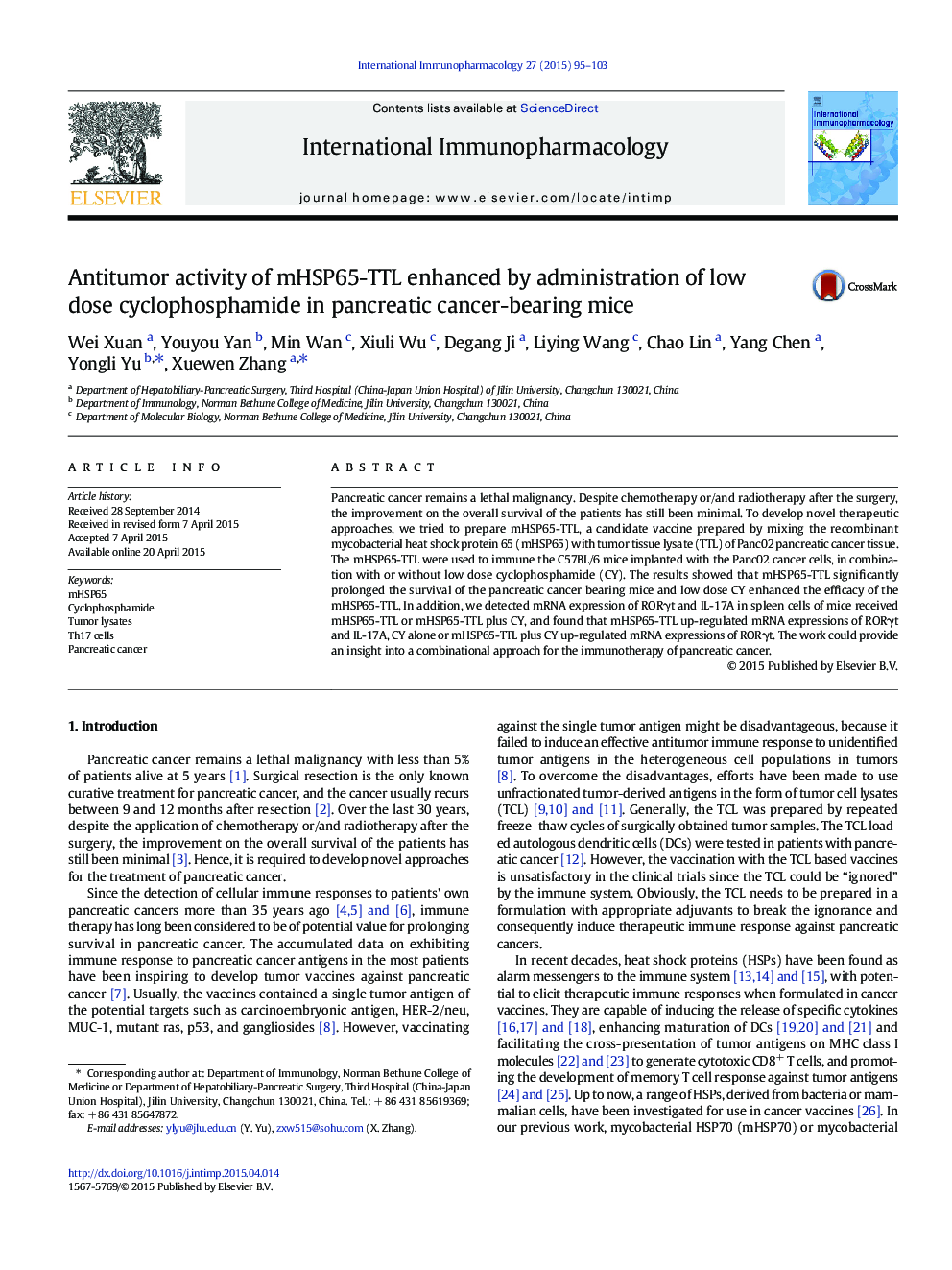| Article ID | Journal | Published Year | Pages | File Type |
|---|---|---|---|---|
| 2540664 | International Immunopharmacology | 2015 | 9 Pages |
•Cyclophosphamide enhanced the anti-tumor effect of HSP65-TTL against intracranial Panc02 pancreatic cancer in mice.•HSP65-TTL and Cyclophosphamide could enhance expressions of RORγt and IL-17A in spleen cells.•HSP65-TTL displayed more potent immunogenity than HSP65-TCL.
Pancreatic cancer remains a lethal malignancy. Despite chemotherapy or/and radiotherapy after the surgery, the improvement on the overall survival of the patients has still been minimal. To develop novel therapeutic approaches, we tried to prepare mHSP65-TTL, a candidate vaccine prepared by mixing the recombinant mycobacterial heat shock protein 65 (mHSP65) with tumor tissue lysate (TTL) of Panc02 pancreatic cancer tissue. The mHSP65-TTL were used to immune the C57BL/6 mice implanted with the Panc02 cancer cells, in combination with or without low dose cyclophosphamide (CY). The results showed that mHSP65-TTL significantly prolonged the survival of the pancreatic cancer bearing mice and low dose CY enhanced the efficacy of the mHSP65-TTL. In addition, we detected mRNA expression of RORγt and IL-17A in spleen cells of mice received mHSP65-TTL or mHSP65-TTL plus CY, and found that mHSP65-TTL up-regulated mRNA expressions of RORγt and IL-17A, CY alone or mHSP65-TTL plus CY up-regulated mRNA expressions of RORγt. The work could provide an insight into a combinational approach for the immunotherapy of pancreatic cancer.
